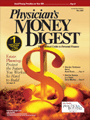PRN: Decisions, Decisions?
Everyone makes countless decisionsevery day—most of them sub-orsemi-consciously made—and we couldn'tget through the day any other way. Onlya tiny fraction of the choices we are confrontedwith make it to our consciousmind, and even those can be overwhelmingin complexity and volume.Nowhere is our struggle with decisionmaking more evident than in our dealingswith money, especially our money.
We function happily and assume thateverything is okay, until something happens.This is known in the trade as a"needs event."It could be external, likethe need to get a job, or it could be aninternal need. We may or may not recognizeit for what it is, but if our filter isworking, we get a metaphorical kick inthe shin and our attention is focused.
Organized Chaos
So what is the first thing that a rationalperson does, even if they're not anobsessive-compulsive professional type?They gather information. But there is"chaos in the marketplace,"as one wagput it, and so we get overwhelmed. Weneed structure, a way to sort throughuseful data and establish a manageablelist of options. Experience and an establishedmethodology helps, which is whyfinancial advisors come in handy.
The Tipping Point
Because we are further stressed by allof the work involved in arriving at a finaldecision, pressure is created to make achoice and move on to the next importantissue. This is the Tipping Point, asMalcolm Gladwell calls it. Gladwell is theauthor of a great little book by the samename, (Back Bay Books;2002). The trick is to not only get off thefence you're sitting on but to also decideon a course of action that you know willsustain you and not stick you with thedreaded unintended consequence.
Problem Solving
Now comes the hard part:
Secondguessing. You know, where you madlyreview possible other choices and try toreassure yourself that you haven't erredbig time. Chooser's remorse is a part ofour human nature. It's a survival tactic,but it sure isn't fun.
It is also aggravated by the overwhelmingchance that others'casualopinions are informed only by fragmenteddata colored by their own agendas. Inother words, when you go looking forreassurance and receive it, you can bet it'susually wrong. For example, how oftendo doctors see hysterical patients whosetipping point was a well-meaning relativewho said, "I knew somebody withthe same thing and their leg fell off."
Recently, the comic strip "Cathy"hada character point out that the person"worse than the ‘Know It all'is the personwho ‘Knows One Thing.'"Whoeveroriginally said knowledge is power had ithalf right. Power only comes from usefulinformation correctly analyzed andproperly applied. And in money matters,as with so many matters in our lives, 9times out of 10 if you don't acknowledgea problem, you can't solve it.
Jeff Brown, MD, CPE,
is a
practicing physician who is a
partner on the Stanford University
Graduate School of
Business Alumni Consulting
Team. He welcomes questions
or comments at jeffebrownmd@aol.com.
